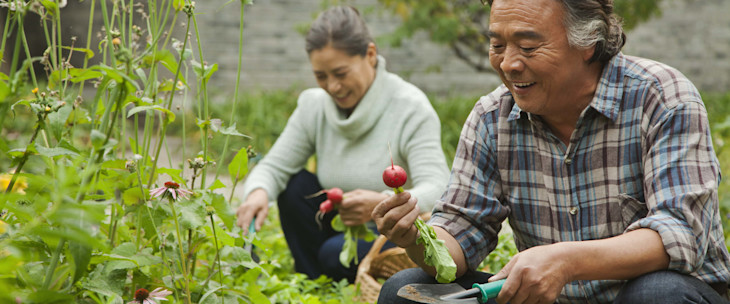You have hopefully spent decades paying into a pension to support your retirement, but are you mentally prepared for the free-form years that lie ahead?
Unfortunately, many pensioners aren’t. In fact, research by the Institute of Economic Affairs has found that retirement could increase the risk of clinical depression by a huge 40%.
Loneliness, lack of mobility and boredom are common causes of depression in later life. For many, however, these are simply regarded as products of having more spare time and becoming older.
Luckily, this isn’t every retiree’s reality; there are plenty of ways to address these problems before they begin. Read on to see how you can feel healthy and happy in your golden years.
Evaluate your work life
The first question you need to ask yourself is: do you really want to retire?
Although freedom from employment is a dream for many, retirement is not suited to everybody. Those who enjoy going to work and chatting to their colleagues might struggle to reach the same level of contentment with hobbies or travelling. In these cases, it might be worth reconsidering, or postponing, retirement until you’re ready.
Make a retirement plan
After decades of thriving in a fixed routine, it may not feel natural at first to do as you please with your time. To fend off those feelings of demotivation and boredom, it is a good idea to make a reliable retirement plan.
While this might sound tiresome (and more hard work), you will feel real satisfaction when your days are shaped with activities which offer a full and stimulating retirement.
To get started, think about the kind of things you would like to achieve. Whether this involves writing a novel, learning to play an instrument, or ticking a travel destination off your bucket list, engaging with activities which motivate you will give you greater purpose in later life
Expand your social circle
If your social life has always been tethered to your job, whether by colleagues or commuting, you may find yourself with a small social circle come retirement. For some, cutting ties and forging tighter, closer connections can be a relief. For others, it can lead to feelings of isolation.
According to Age UK, 1.4 million older people are chronically lonely in England. Studies have even linked loneliness to worsening symptoms of physical problems, such as heart disease, cancer and diabetes.
However, as many will know all too well, it is not easy to strike up new friendships in later life. To keep yourself socially active, you simply must put yourself ‘out there’. Join a golf club, get green-fingered at your local allotment, volunteer at a charity, or hop onto social media to reconnect with old friends.
To find a community group or activity in your local area, head over to Age UK.
Have a positive outlook
After years of framing your life around a nine to five schedule, retirement offers the time to break free and do what truly makes you happy.
Whether this involves spending more time with family, turning your attention to forgotten hobbies or jetting off around the world, retirement offers a wealth of opportunities to get the most out of your time. So, stay positive – who knows what exciting event could be around the corner?
Funding your retirement
Enjoying a thriving social life in your golden years is important – but one thing is for sure: it doesn’t come cheap. While a ‘rainy day fund’ may have been enough during your working life, retirement requires far more cash to fall back on.
To make sure you get the most from your retirement, you might want to consider equity release. This lets older homeowners unlock wealth, which is tied up in their property, giving them the financial freedom to realise their retirement goals.
To find out more about how equity release could help to fund your retirement plans, contact the Equity Release Supermarket team on Freephone 0800 802 1051, or email [email protected] .




